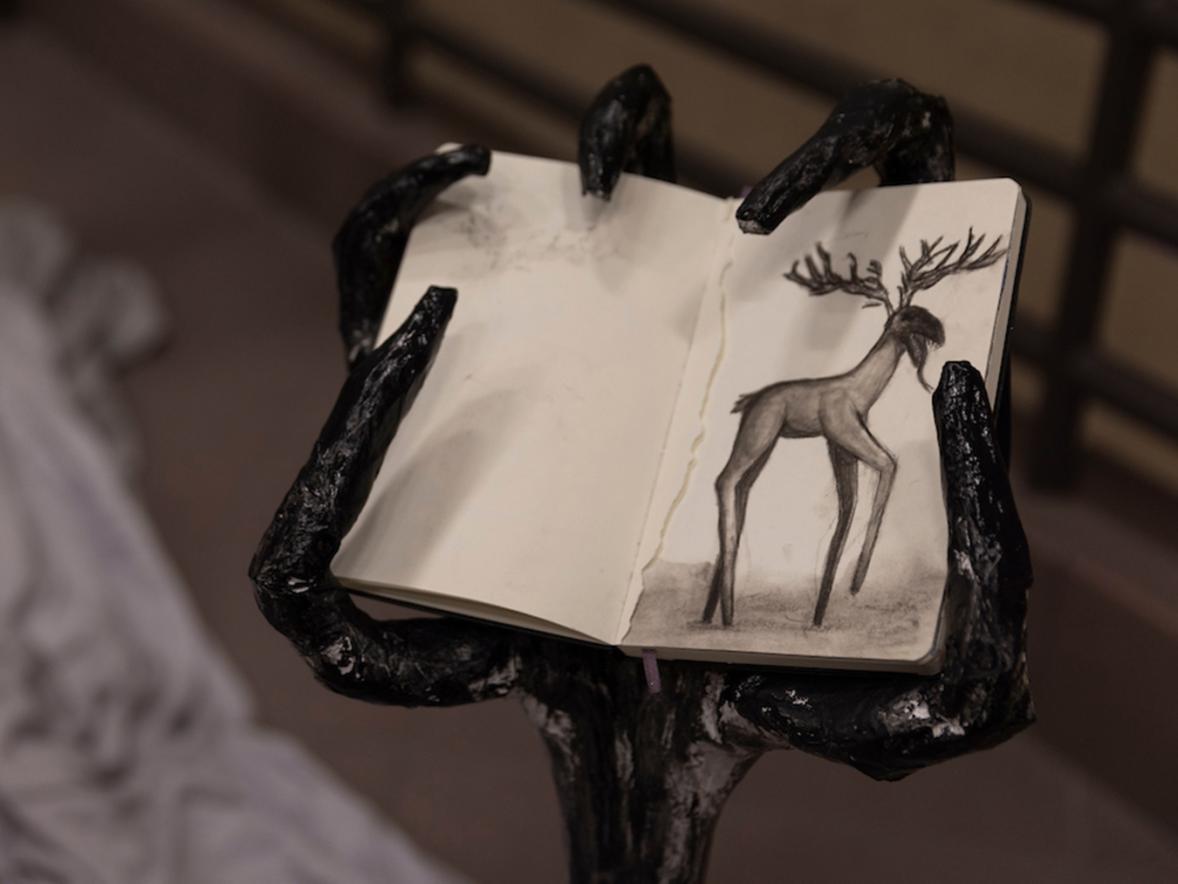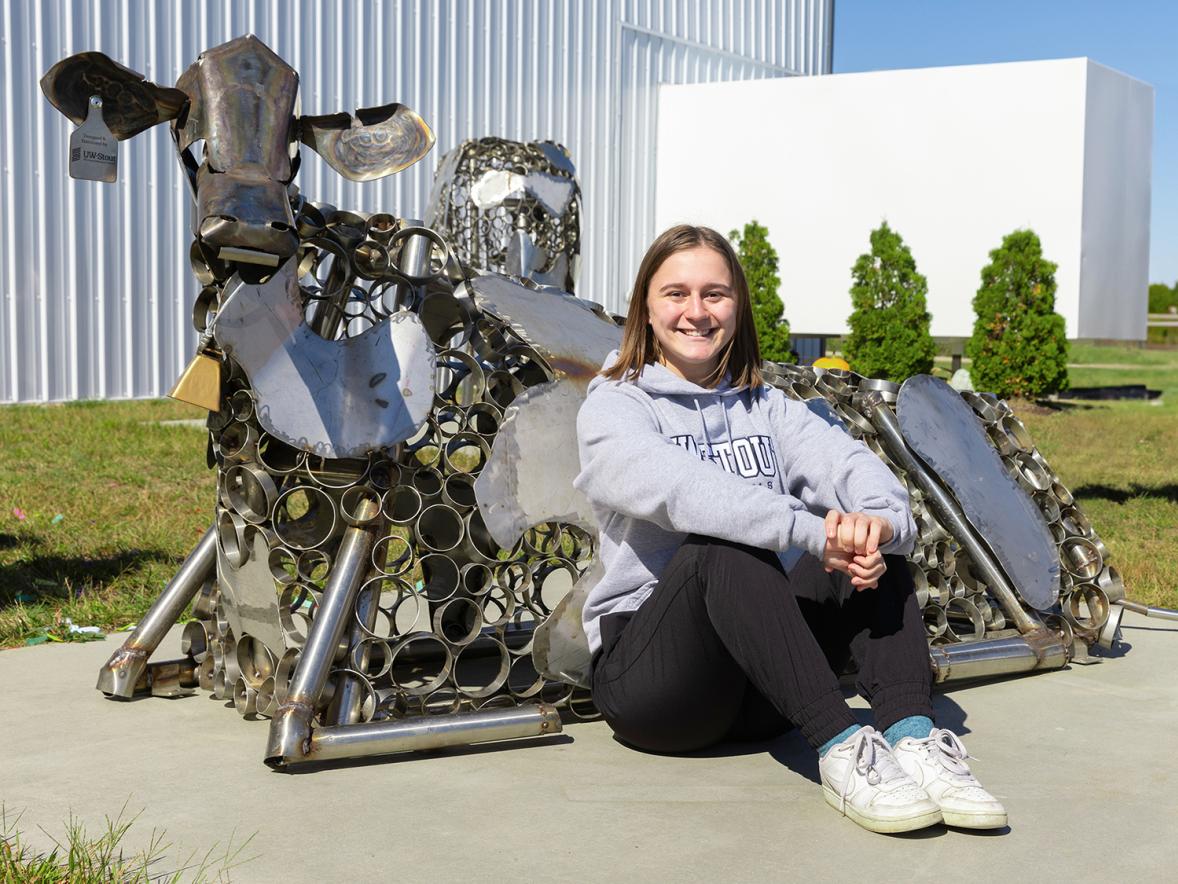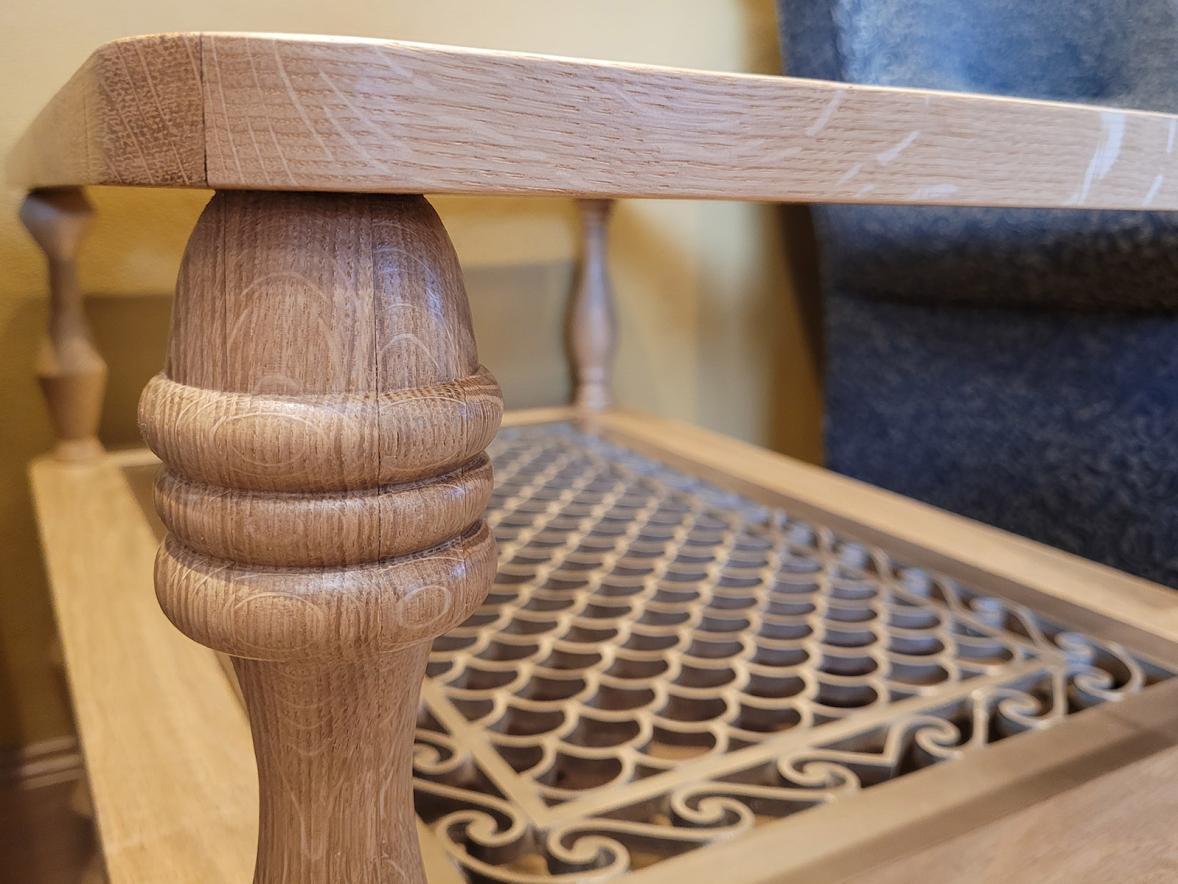What if emotions could manifest themselves? What if we could give them a name and a face? Would depression, anxiety or loneliness be easier to battle?
Renae van der Hagen’s sculpture “Disquiet Dream” begs to ask these questions. Her sculpture – a giant deer on stilted legs – looms a daunting 15 feet tall. His antlers, with tines like sprawling fingers, span 10 feet across. His mouth gapes wide with bone-white fangs and flicking tongue.
Van der Hagen, an industrial and product design senior at UW-Stout, has been drawing and writing down her dreams for years.
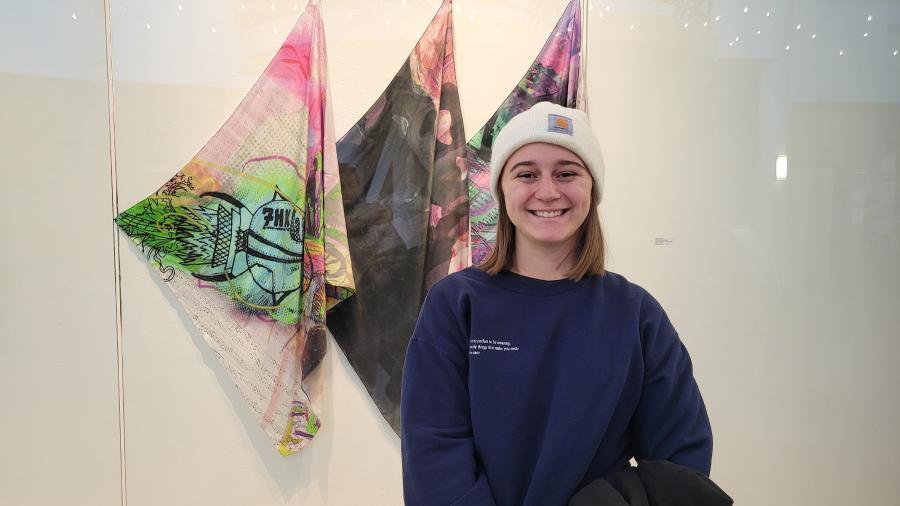
She calls “Disquiet Dream” her anxiety monster, inspired by a vivid dream, and drew him when she was still half asleep, capturing her anxious feeling on paper.
Through the first week of November, the sculpture greets guests at the entrance to the Menomonie Rassbach Museum’s Historic Haunted Houses exhibit, a gathering of miniature haunted houses made by community members.
Each haunted house tells a story, and visitors can vote on their favorites in the art and creative writing display.
The museum will have a family-friendly Halloween event called Treats on the Trail from 1 to 3 p.m. on Saturday, Oct. 26.
A loveable beast on display

The pandemic struck during van der Hagen’s first year at college. She didn’t have a roommate, and being away from home, felt isolation and constant anxiety.
“In my dream, this creature is standing behind me, above me, and I’m like, ‘Doesn’t anyone see this thing?’” she said. “He’s my anxiety monster because nobody else can see him, but I can feel him. Four years later, I’ve gotten used to some anxiety, but he’s always there. He’s still looming, but he’s not as scary.”
Van der Hagen, of Sauk Rapids, Minn., brought her anxiety monster to life in Professor Kelly O’Brien’s Contemporary Sculpture class in fall 2023.
“I wanted to create a scale model, but Kelly said, ‘Make him full size,’” she said, and so the massive, mythical beast manifested in the School of Art and Design’s studio lab spaces.
Deano Samens, instrument shop coordinator; and Doug Stodola, machinist, helped van der Hagen build the sculpture’s frame in the shop before moving it to the Process Lab, where she completed her creation in less than three weeks.
He’s made of 2x4 boards, chicken wire, papier mâché and cardboard. Sheets spread under the sculpture represent the dream world.
“I came in after hours to complete him. Doug helped with the build. I did the head at home with cardboard. He’s pretty delicate, even for his size,” she said. “The longest stint I worked on him was for 16 hours straight. My roommate brought me pizza. There aren’t any windows in the lab, so you lose track of time.”
Classes with clients: Steel cows, other designs by 60+ students support four businesses
Continue ReadingThis was van der Hagen’s first large-scale project. Her second large-scale project – a set of three cow sculptures, completed with a team of students, faculty and staff, including Samens – was recently installed on the lawn outside the new Ellsworth Cooperative Creamery cheese factory in Menomonie.
“During our class critique, Kelly said she didn’t like how white his teeth are. But I explained that he doesn’t eat anything. He doesn’t have to. So, there wouldn’t be any wear or dirt on his teeth,” she said.
“Disquiet Dreams” first appeared outside of the lab when Samens and Stodola talked to coordinators at the university’s Furlong Gallery and asked to have him as part of the fall 2023 SOAD Senior Show. He stood on the second floor of the gallery atrium and received such a grand response from viewers that he remained there through the spring 2024 show, when van der Hagen’s family was able to visit and see her sculpture.

“I didn’t think he would live longer than the class critique. I was ready to dismantle him,” van der Hagen said. “But there were so many people talking about him and taking pictures of him. It was one of the most interactions we’ve had with a sculpture piece at Furlong.”
Van der Hagen worked with Samens and Stodola over the summer, when the museum reached out with interest in having “Disquiet Dream” installed for the haunted house exhibit.
“I’m very grateful that Doug and Deano helped me: one, in the building process; two, in moving the sculpture to Furlong; and three, in getting in contact with the museum and moving him there.”
Collaboration and community
Van der Hagen thinks collaboration is an absolutely important aspect of public art and industrial design.
“You have to know people, and those people have to know people,” she said. “It takes a community to help push out art so others can see it. Kelly, Deano and Doug – I have amazing people who push me to present pieces for the public instead of just for a class.”
The Rassbach Museum collaborates with UW-Stout students on several levels – from research, design and engineering projects to showcasing student art. For example, master’s in design graduate Jackson Yang’s thesis exhibit Intergenerational Threads and Klaire Johnson’s and Emma Walstra’s Fashion Without Fabric design “The Prime Divine” are currently on display.
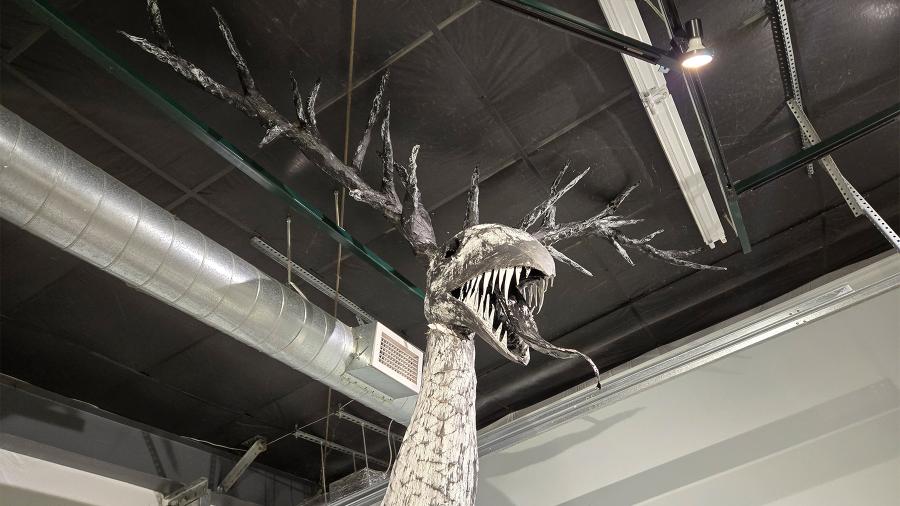
“It allows the museum to benefit from the fresh and creative ideas of students, along with providing a testing ground for student work,” Kneeland said. “Oftentimes, the remarkable accomplishments of students are not seen off of campus, while at the museum, their work can be enjoyed by and inspire members of the wider community.
“I also believe that collaboration with nonprofits shows students how important and valuable participating in community collaboration can be, no matter where they end up,” she added.
Van der Hagen has thought about making “Disquiet Dream” again in the future, in a smaller size. After the exhibit has closed, she plans to mount the sculpture’s head. It may be placed next to the hippogriff sculpture, “Buckbeak,” at the museum as part of a future fantastical animal exhibit. “Buckbeak” was created by a studio art graduate Anna Strong in 2017 and stood in the Furlong atrium for some time before its installation at the museum.
Van der Hagen began her college career in the mechanical engineering program but was also looking into graphic design. She decided to switch majors during the pandemic. “With industrial design, I get the creative side and the making of things. It took me a bit to find it, but I love it.”
She will graduate in spring 2025 and would like to work in the ideation process and modeling, taking designs and making 3D physical models.





